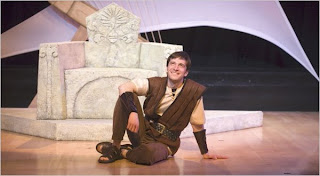Here, we will mention an author and his entire body of work since his importance ranges across all his novels and other writings. My introduction to Lewis was in my freshman English class at Dartmouth, under the esteemed conservative, Professor Jeffrey Hart, where Perelandra (part of the Space Trilogy) was assigned reading. The extra terrestials (eldila) in this fantasy novel bore a remarkable affinity to angels.
C.S. Lewis – Clive Staples Lewis (1898 – 1963) – was a leading figure of the English faculty at Oxford University and a close friend of J. R. R. Tolkien, the author of The Lord of the Rings. Although an academic himself, Lewis was critical of the historical approach to evaluating Scripture prevalent in the universities of the mid twentieth century, and he became a Christian apologist in essays and novels.
His most famous apologia, Mere Christianity, was a compilation of BBC radio essays broadcast during the early 1940’s.
Out of the Silent Planet (1938) was the first of The Space Trilogy soon followed by Perelandra (1943) and then That Hideous Strength (1945). Although space travel provides the setting, the books have little to do with the science of planetary exploration, which is merely a mythological framework for his treatment of Christian themes with a heavy dose of Lewis’ views on Christian theology. The storyline is apocalyptic, with battles of good vs evil, fallen angels, and a final decisive struggle. It has similarities with Tolkien’s fantasy world and themes of cataclysmic battle.
The Screwtape Letters (1942) is a fictional account of a series of letters from a senior demon, Screwtape, to his nephew, Wormwood. The premise of the letters is the temptation of humankind. Set in a contrived bureaucracy of Hell, Screwtape, Wormwood, and others attempt to lead humankind astray and thus render them candidates for damnation. Along the way, Lewis offers his hard hitting, conservative views on a variety of theological and moral issues.
Written between 1949 and 1954, The Chronicles of Narnia are Lewis’ most famous works with nearly 120 million copies sold. The seven books of this children’s fantasy series have achieved classic status with multiple reprints, foreign translations, and television and movie adaptations. If William Young receives rebuke for his imagining of God as a sassy, black woman in The Shack, Lewis paved the way by treating the talking Lion Aslan as a Christ figure. These stories are reaching the current generation of children through the popular movie series underway. The recurring storyline has human children magically transported to the fantasy world of Narnia where they join Aslan in the battle of good vs evil.
 Join Email List
Join Email List
